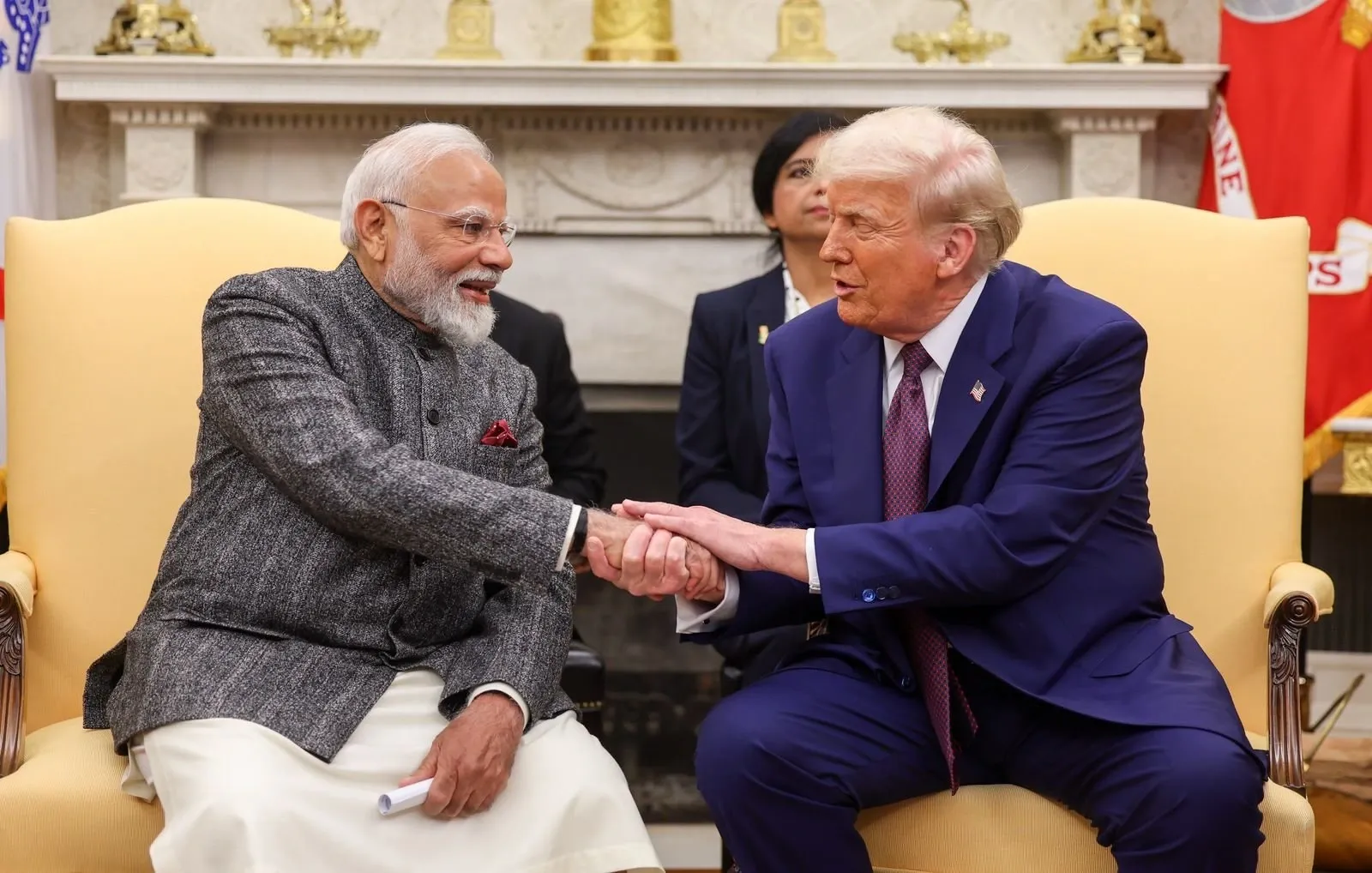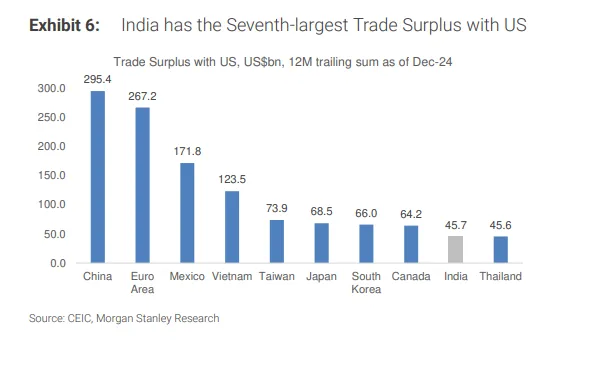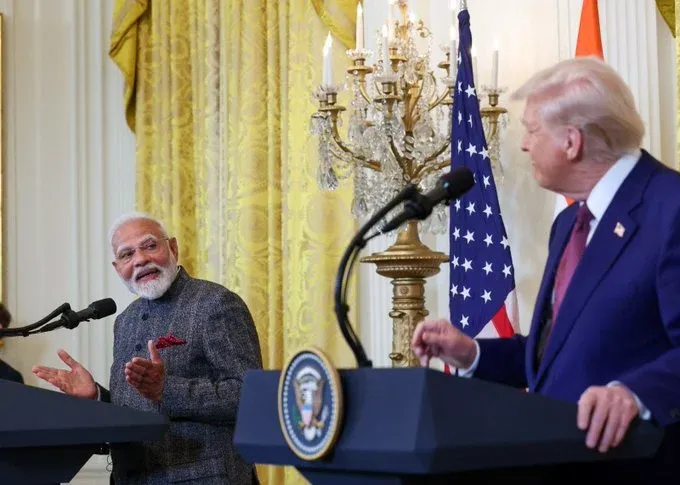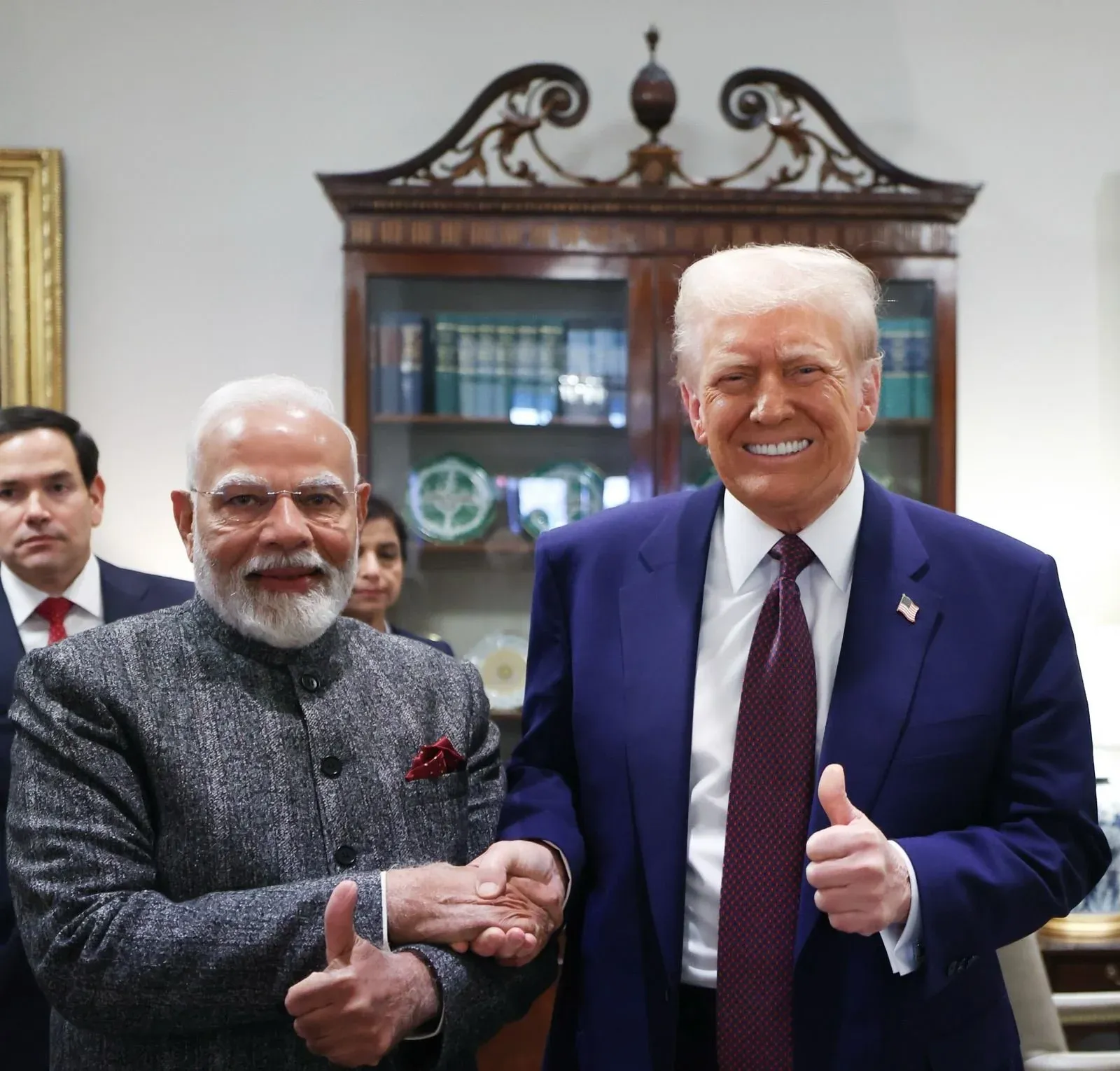Business News
Trump's reciprocal tariffs: Auto, textiles, and pharma among nine Indian sectors that could come under pressure
.png)
4 min read | Updated on February 14, 2025, 12:34 IST
SUMMARY
Donald Trump said that India's tariffs were "very high" and promised to match them, even after his earlier levies on steel and aluminum hit metal-producing India particularly hard. "We are being reciprocal with India," Trump said during the press conference. "Whatever India charges, we charge them."

Prime Minister Narendra Modi met US President Donald Trump on Thursday during his two-day visit to the US.
"On trade, I have decided that for the purpose of fairness, I'll charge reciprocal tariffs—meaning, whatever countries charge the United States of America, we will charge them—no more, no less. They charge us with tax and tariffs; it's very simple; we will charge them with exact tax and tariffs," Trump said.
Prime Minister Narendra Modi met US President Donald Trump on Thursday during his two-day visit to the US. The two leaders held high-stakes talks, focusing on trade, energy, technology, and immigration.
Trump added that India's tariffs were "very high" and promised to match them, even after his earlier levies on steel and aluminum hit metal-producing India particularly hard. "We are being reciprocal with India," Trump said during the press conference. "Whatever India charges, we charge them."
Impact of reciprocal tariffs on India
Morgan Stanley, in its research report, dated February 13, said that the direct impact of reciprocal tariff hikes will likely be manageable; however, the indirect impact through uncertainty weighing on business confidence is more worrisome.
The reciprocal tariffs could impact India, given India has higher tariff rates as compared to the US.
Within the Asia region, India's tariff rates are at the higher end and likely more exposed to reciprocal tariffs if implemented. Within key segments, tariff rates imposed by India are highest for food-related categories, followed by textiles, the report added.
Weighted average tariff rates imposed on US imports (by India) are at 8.5% (adjusted for reduction in recent budget) versus tariff rates imposed by the US at 3%, wrote Upasana Chachra, Chief India Economist at Morgan Stanley, in a co-authored report by Bani Gambhir, an economist at Morgan Stanley.
The economists opine that certain segments may get much higher tariffs, considering that India charges very high tariffs on segments such as motorcycles (tariff rate of 30%, reduced from 50% earlier), which could push the weighted average tariff rate higher.
Weighted average tariff rate is the average duty applied to imported goods. It is a measure that weighs each tariff by the share of total imports in a particular import category.
Besides, they said, indirect impact from uncertainty stemming from tariff/trade policies would create an overhang on business confidence and potentially lower global growth.
Moreover, they are worried about the impact of uncertainty leading to risk aversion.
The report added that product-wise, tariff differentials are stark, and key segments, which could come under pressure due to reciprocal tariff hikes, are electrical, industrial machinery, gems & jewelry, pharmaceuticals, fuels, textiles, iron & steel, autos, and chemicals.
US: Key destination for India's exports
The report notes that the US has been a significant destination for India's exports, with its share in overall exports at 15.8% in FY2018 (pre-tariffs), while it rose to 16.9% in FY2020 and touched 17.7% in FY2024. Among the key commodities that India exports to the US are electrical machinery, gems & jewelry, pharma products, textiles, autos, iron & steel, and chemicals.
On the other hand, India comprises a rather tiny share of US overall imports, with its share at 2.1% in 2017 and 2018, rising by 20 bps to 2.3% in 2019, and further up to 2.7% as of 2024, registering a nearly 11.4% CAGR from 2017 until now. As such, India runs a trade surplus with the US, tracking at US$ 45 billion in CY24, making it the seventh-largest trade surplus amongst nations that have a trade surplus with the US.

The US is also an important market for India's services exports, with a share of 54% in India's software service exports as of FY 2024, per RBI data. Within services, computer services comprise the highest share at 27%.
On a three-year CAGR basis, professional and management consulting services imports from India have grown at 18.5%, which is 2 times the growth of the total imports of these services.
Related News
By signing up you agree to Upstox’s Terms & Conditions
About The Author
Next Story



